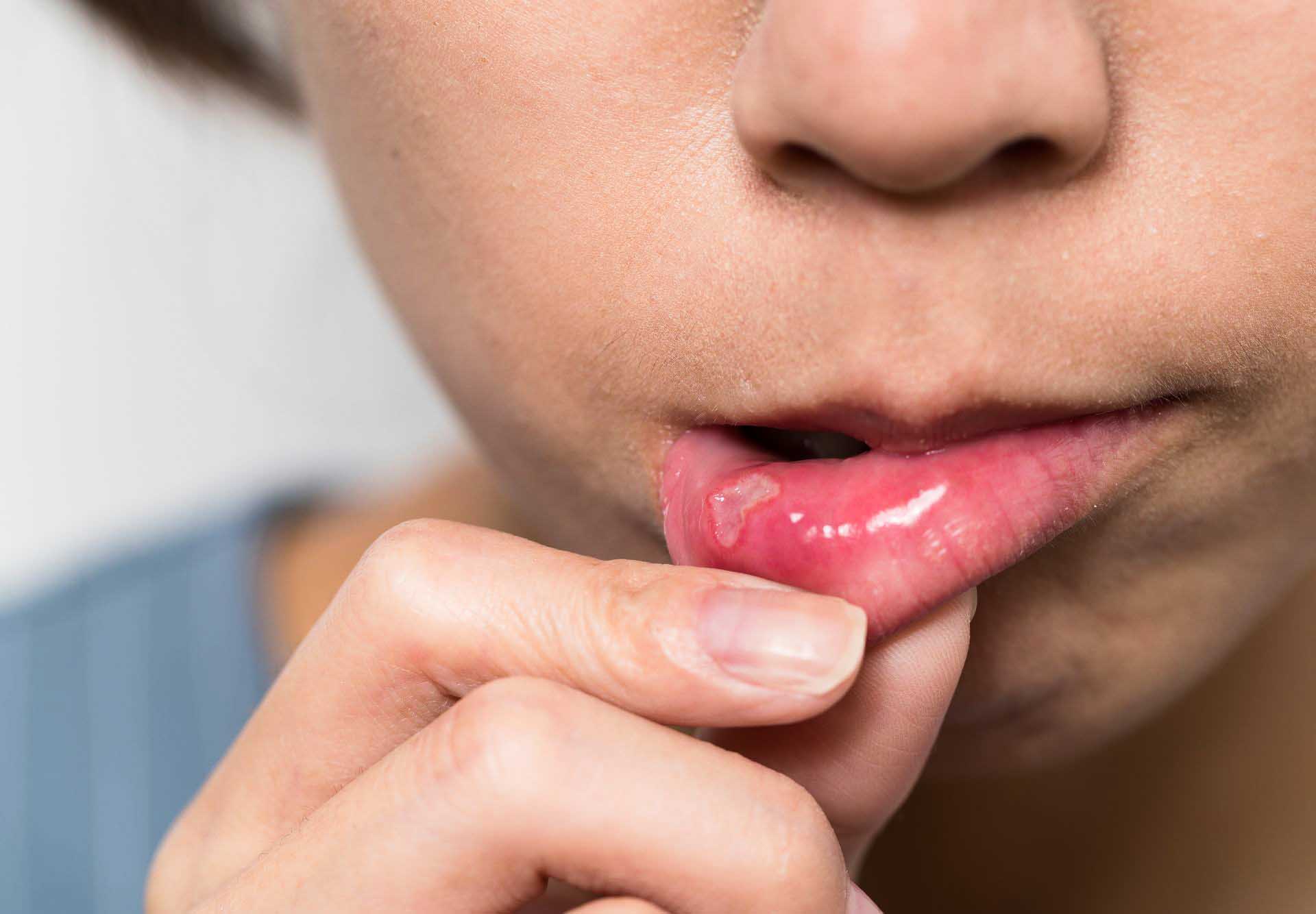If you’re one of the 60% of the population who suffer from canker sores, you know how excruciatingly painful they can be. The underlying cause of canker sores is still unknown, but that doesn’t make them any less of a nuisance. According to Children’s Hospital of Michigan pediatrician Dr. Lynn Smitherman, knowing how to deal with canker sores is crucial for both parents and children.
Here’s a closer look at these unwelcome mouth visitors, including who they affect and what you and your family can do about them.
What exactly are they?
Lesions inside the mouth are called aphthous ulcers or canker sores. Ulcers can range in size from the tip of a needle to half an inch. In most cases, canker sores heal on their own within a few days, but they can sometimes linger for up to six weeks, making it difficult to take in food and liquids.
According to Smitherman, canker sores and cold sores are frequently confused, but there is a significant difference. Canker sores are not contagious because they are not caused by a virus, but cold sores are. Cold sores appear around the lips and occasionally under the nose, whereas canker sores appear only on the inside of the mouth.
Who gets them, and why?
Canker sores are more common in children aged ten and up, though Smitherman says they can occur in children as young as four. While the causes of canker sores remain unknown, there are a few known common risk factors. The most likely factor, according to a recent paper published in the Journal of the American Board of Family Medicine, is trauma to the inside of the mouth. This can happen when children bite their tongues and cheeks.
Smitherman mentions a few more risk factors. They include food allergies, improperly worn sports mouth guards, new braces, and sodium lauryl sulfate, a chemical commonly found in toothpaste and dish soaps (SLS).
“Stress is also a factor in older high school or college kids,” Smitherman says, “especially those taking exams.”
Prevention or treatment
Smitherman advises parents to keep their children’s lips moisturized to discourage them from biting their lips. In general, avoiding trauma to the inside of the mouth is the best prevention for both children and adults.
If children or adults do develop canker sores, there are a few things they can do to reduce irritation and discomfort. For temporary relief, the American Dental Association recommends avoiding spicy or acidic foods (such as citrus fruits) and using over-the-counter topical anesthetics and antimicrobial mouth rinses.
Although topical prescription medications are available, they are rarely required. Canker sores usually heal in about five days for most people.
While canker sores are “annoying,” Smitherman says there is usually no need to see the family doctor unless the sores reoccur.
Canker sores that last longer than a few months should be checked out by a doctor in case they indicate something more serious.
Meaningful articles you might like: Teaching Children Lifelong Hygiene Habits, Advice For Girls on Good Personal Hygiene, Encouraging Healthy Eating Habits in Children

